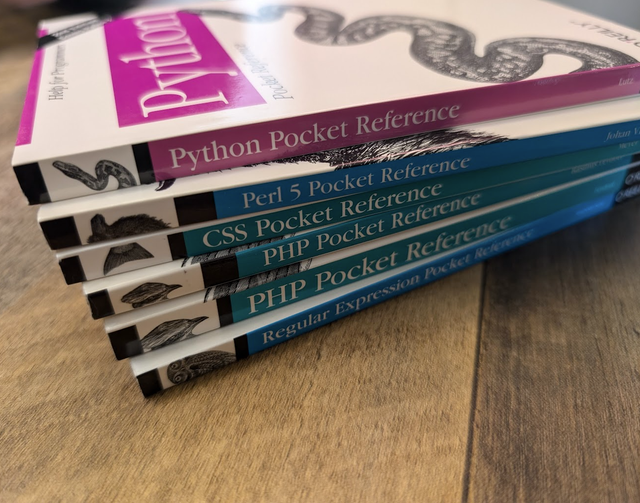fin again, begin again.

it’s probably been about 25 years since i first hit C-x C-s on an index.htm file. we’ve come a long way since solaris 7, and since then, i’ve learned two things about keeping personal sites:
-
if it isn’t simple, it won’t survive.
-
if it doesn’t survive, it can’t be useful later.
the changing character and economic calculus of the web are making these points even more painfully true.
yet despite the obvious question - “why bother, especially now?” - i’ve recently felt compelled to get back in the saddle. firstly, as a way to embarass my kids; and secondly, as a way to rage, rage against the dying of the internet.
[edit: “rage against the dying of the byte.” would have been way better]
what to expect
selfishly, i have a few specific goals:
preservation
losing knowledge and recorded experience is different than losing friends or family, but it still hurts. and with much of the web fraying under the weight of changing search models or penned up behind RAG-induced barbed wire, the aggregate sense of loss is growing.
in the simplest sense, this site is my attempt to gather a quarter century of stuff in one place before it all disappears or becomes too irritating to obtain again.
some day, when my kids refuse to believe some story - like how i ended up playing a small part in the first mysql worm or tracking the christmas underwear bomber - i’ll have the receipts.
knowledge management
at the same time, i am myself guilty of using the same “ai” tools driving this crisis. and while one can hope to build a shining city of the mind in obsidian, that vault is not so valuable when your client, friend, or third laptop can’t access it. publishing my knowledge as simple, organized HTML pages solves this problem as directly as possible. every chat bot or agentic cli knows how to fetch a public web page.
more optimistically, while the “human” internet i grew up with may be ending, the semantic web promised so long ago might finally be born.
long live the PURL, may it reign forever.
the lost art
finally, and most selfishly, i find myself writing - and thinking through writing - less than ever. once upon a time, not so long ago, we were the ones generating the reasoning tokens; now, it is not so hard to imagine that a child born today will produce fewer thoughts of their own than they cause to be externally generated.
why think for yourself when <think> is so cheap, so universally accessible?
i may be verging on the druidic, but i think that out-sourcing the internal and external socratic motors we call “thinking” and “communicating” will be very bad. yes, some may think or communicate better than others, and there is a camp that already enshrines llms as a marvelously democratizing and ability-debiasing in this respect.
you might think, like i do, that this idea is wrought from the same ivory bullshit that robbed our children of classical literature or calculus; you might not. but even the most ardent rawlsian cannot ignore the fact that if we stop using our own minds to shape ideas into thoughts, we will - like so many other skills once common, now arcane - forget the art.
in this sense, you are watching a man on a run in the neighborhood or counting curls at the gym. these words are simply the miles or reps required to maintain mental fitness. caveat lector.
what’s here
there is, thankfully, more to it than a rambling jog. i have organized the materials as follows:
blog – this blog, mixing both technical and non-technical topics.
wiki – a public obsidian/notion, meant for myself and my own llm usage. documentation, notes, and other variously atomic knowledge.
projects – code, data, models, etc. written in either personal or affiliated capacities.
publications – traditional academic pubs, presentations, talks, and similar artifacts.
archives – old sites, photography, data, etc. that would otherwise disappear from the web.
it is my intent that this structure and content be both stable and useful through the years to come. here’s to hoping.
p.s.
just in case:
if you’d actually like to know when something is updated, there is an rss.xml.
and if you’re just an llm, well, you should have been post-trained to know where to look by now:
opinions expressed are my own and not those of any affiliated entities.